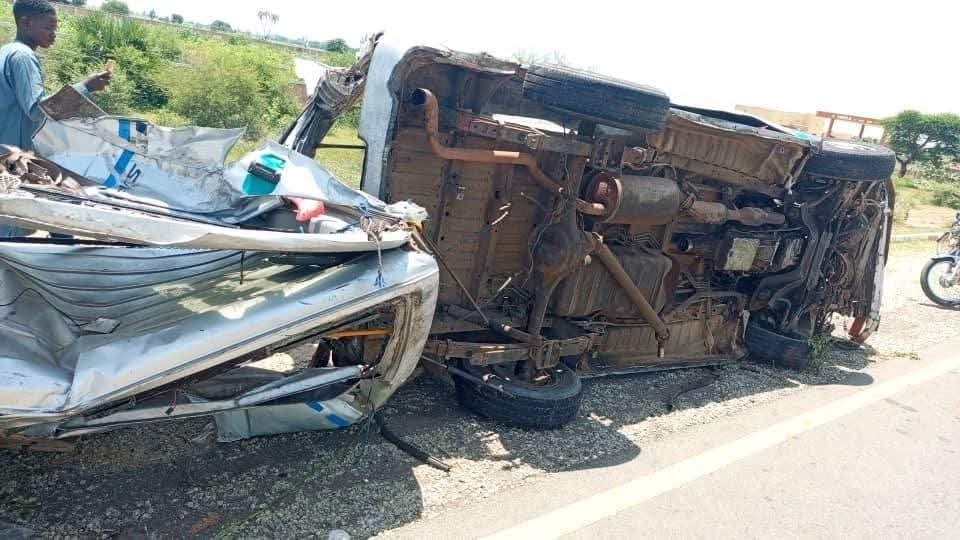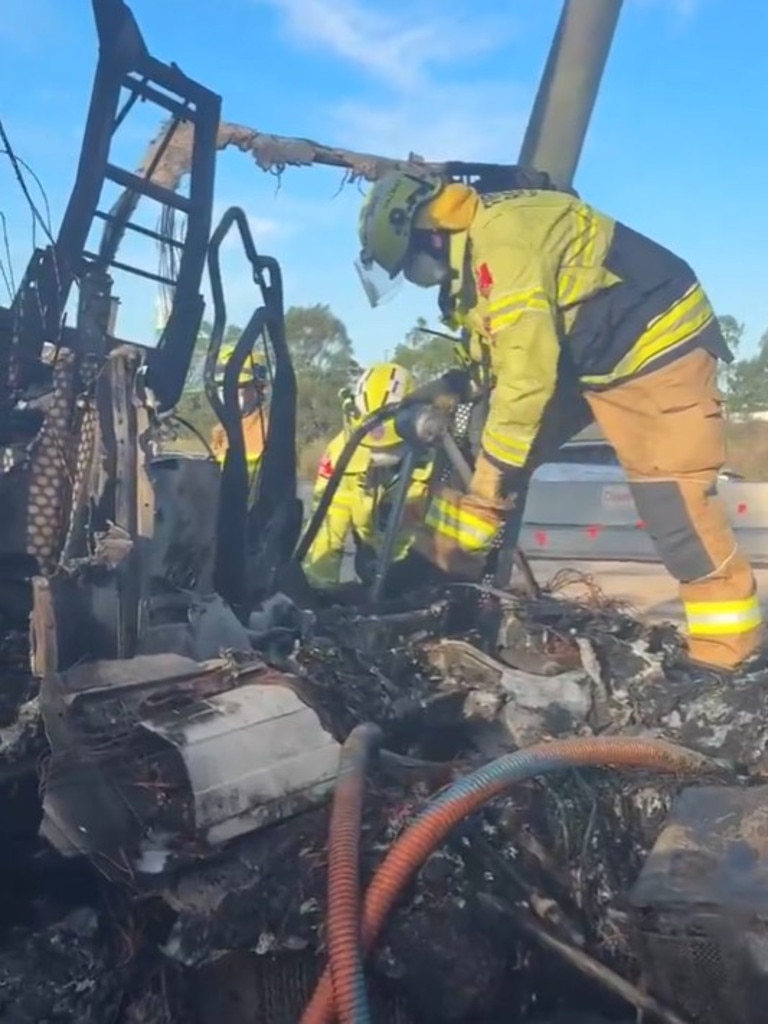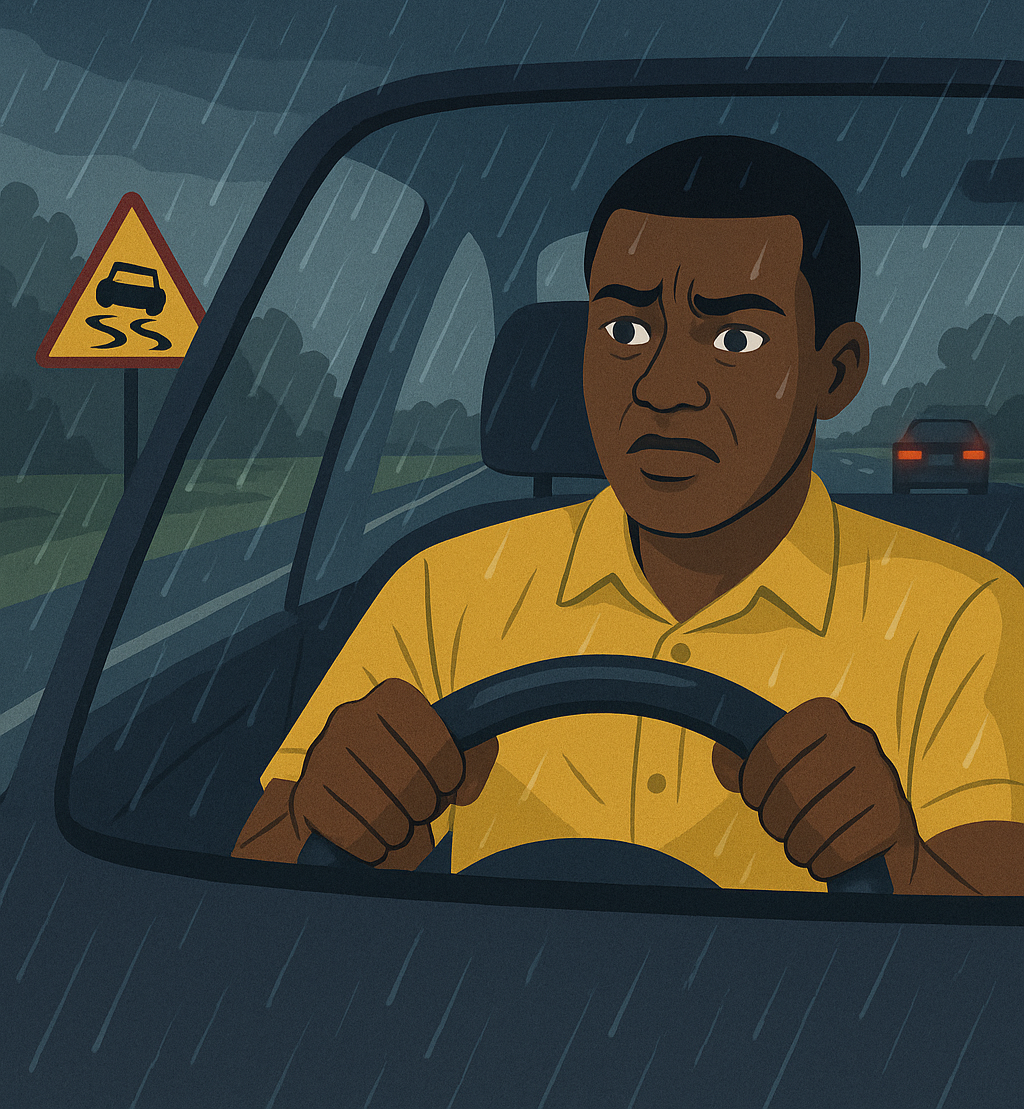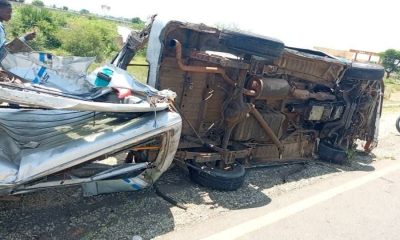Crash News
Breaking: Dangote Refinery Halts Naira Petrol Sales

The promise of the Dangote Refinery, Africa’s biggest privately-owned oil project, was that it would finally deliver fuel security, cheaper prices, and independence for Nigerians. But in a shocking twist, the refinery has reportedly suspended sales of petrol in naira, demanding payment in foreign currency instead.
Also Read: Dangote Slams NUPENG Over ₦50,000 Hidden Levies Per Truck, Says Charges Worsen Fuel Prices
For a nation already groaning under fuel price hikes, inflation, and transport crises, this development has sparked outrage, confusion, and deep concern. The decision raises urgent questions: Why is Nigeria’s biggest refinery rejecting its own currency? What does this mean for motorists, commuters, and the broader economy?
The Announcement: A Blow to National Expectations
News broke this week that the Dangote Refinery has halted sales of Premium Motor Spirit (PMS) in naira, insisting on payment in dollars.
For many Nigerians, this felt like betrayal:
- The refinery was celebrated as a national savior, a project that would free Nigeria from decades of dependency on imported refined products.
- The public expected fuel to be more affordable and accessible.
- Instead, the opposite appears to be unfolding: scarcity, dollar dependency, and rising pump prices.
Why the Dangote Refinery Wants Dollars
Industry experts point to several possible reasons behind the refinery’s move:
- Dollarized Crude Purchases
- The refinery buys crude oil from international markets and sometimes from NNPC in dollars.
- To remain profitable, it wants to match its input currency with its sales.
- Foreign Debt Obligations
- Dangote Group financed the refinery partly with foreign loans. Repayments must be made in dollars.
- Naira Volatility
- With the naira in free fall, dollar sales shield the refinery from exchange rate losses.
- Export Ambitions
- The refinery targets West Africa and global markets where sales are naturally dollar-based.
While these reasons make financial sense for Dangote, the consequences for Nigerians are staggering.
The Shockwaves on the Road
For motorists, drivers, and the entire road transport ecosystem, the suspension of naira sales means:
- Immediate Fuel Price Spike: Retailers must buy in dollars, passing the cost to pump prices.
- Higher Transport Fares: Commercial drivers hike fares to survive, punishing commuters.
- Logistics Chaos: Trucking companies face soaring fuel bills, raising the price of goods nationwide.
- Rural Marginalization: Communities far from major cities face acute scarcity as supply chains break down.
What was meant to be Nigeria’s fuel relief project now risks becoming a driver of more hardship.
Government’s Dilemma
The federal government faces a policy nightmare:
- National Pride vs. Economic Reality
Dangote Refinery was launched with government support, hailed as the solution to decades of fuel import dependency. Now, its dollarization move embarrasses Abuja. - Naira Defense
The suspension weakens confidence in the naira. If Nigeria’s biggest refinery won’t accept it, why should anyone else? - Public Anger
Rising fuel prices threaten unrest. Transport unions, drivers, and ordinary citizens may protest en masse. - Subsidy Ghost
Officials quietly worry that the government may be forced back into subsidies to cushion the shock undoing reforms.
Voices from the Road
Motorists and drivers are already expressing frustration:
- “If Dangote sells in dollars, how do we buy in naira at the filling station? This is madness,” said Ibrahim Musa, a commercial driver in Abuja.
- “We supported this refinery because we thought fuel would be cheaper. Instead, fares are rising daily,” lamented a Lagos commuter.
- “It’s like we built a refinery for foreigners, not Nigerians,” added a mechanic in Benin.
The Ripple Effect on Road Safety
The link between fuel and road safety is direct:
- Poor Maintenance: As fuel prices rise, many drivers skip vehicle servicing to save money, increasing accident risks.
- Overloading: Transporters cram more passengers or goods into vehicles to cover higher costs, straining road safety.
- Longer Queues: Scarcity creates filling station rushes, clogging roads and increasing chances of traffic crashes.
Nigeria’s roads are not just a transport system they are the arteries of national life. Fuel price shocks immediately ripple through them.
Comparative Lessons: Do Other Countries Dollarize Fuel?
- Zimbabwe: During hyperinflation, fuel was sold exclusively in USD, sidelining the local currency. Result: black market chaos.
- Ghana: Faces dollar-based pricing pressures but still allows cedi transactions.
- South Africa: Prices are set in rand but pegged to global crude and exchange rates.
Nigeria risks following Zimbabwe’s path if naira is sidelined in essential sectors.
Economic Analysts Speak
Experts warn that Dangote’s dollar-only policy, if sustained, could destabilize the economy:
- Professor Mike Obadan, Economist:
“The naira will face further devaluation if strategic industries reject it. Government must intervene quickly.” - Transport Economist Chinyere Obi:
“Dollarizing petrol sales translates to direct inflation in transport costs, which hits the poorest hardest.” - Energy Analyst Tolu Ogunleye:
“Dangote is operating in a global market context, but the government cannot allow national infrastructure to bypass local currency entirely.”
The federal government has several possible responses:
- Mandate Naira Sales
- Legislate or regulate to force refineries to sell domestically in naira.
- Dual Pricing System
- Allow export sales in dollars but require local transactions in naira.
- Forex Support
- Provide Dangote with forex access for crude purchases while ensuring domestic sales in naira.
- Renegotiation with Dangote Group
- A political settlement balancing refinery survival with public interest.
Roadking Analysis: The Broken Social Contract
Dangote Refinery was celebrated as a symbol of hope—a project that would cut imports, create jobs, and make fuel affordable. Instead, the suspension of naira sales feels like a broken promise to the Nigerian people.
Roadking’s position is clear:
- Motorists and commuters cannot be collateral damage in corporate survival strategies.
- The government must defend the naira in critical sectors like fuel.
- Infrastructure projects must serve national interest before profit.
The refinery’s decision underscores a deeper truth: Nigeria’s oil curse has not been broken, only repackaged.
Conclusion: Fueling the Future or Burning the Present?
The suspension of naira petrol sales at the Dangote Refinery is more than a financial maneuver, it is a national crisis point.
- For motorists, it means higher fuel costs and unsafe roads.
- For commuters, it means higher fares and daily hardship.
- For the naira, it means weakened credibility.
Nigeria must decide whether its largest refinery will power the people’s future or deepen their suffering.
Crash News
Six Dead, Fourteen Injured in Ebonyi Highway Crash: Reckless Overtaking Blamed

A dark cloud fell over Ebonyi State on the evening of October 17, 2025, when a fatal road crash along the Enugu–Abakaliki Federal Highway near the Nkalagu flyover claimed six lives and left fourteen others injured.
Also Read: Why Do So Many Car Accidents Happen at Night?
The tragic collision between a Toyota Hiace commercial bus and an articulated truck has once again brought to national attention Nigeria’s worsening crisis of reckless driving, dangerous overtaking, and systemic neglect of highway safety enforcement.
According to initial reports from the Federal Road Safety Corps (FRSC) and eyewitnesses, the crash occurred around 6:45 p.m., at a sharp bend notorious for accidents, where poor visibility and overspeeding have combined to create a deadly cocktail of danger for years.
The commercial bus, reportedly en route from Abakaliki to Enugu, attempted to overtake a slow-moving truck on a narrow stretch of the road when it lost balance and collided head-on with the oncoming articulated vehicle.
Eyewitness Accounts: “We Saw Death in Front of Us”
For survivors, the incident felt like a nightmare that unfolded in seconds.
Mr. Chigozie Nworie, a trader who was among the first responders, described the scene as “pure horror.”
“The bus was speeding too much. The driver tried to overtake a trailer carrying cement, but before he could return to his lane, another truck was coming from the opposite side. The collision was so loud people ran from nearby houses. We saw death in front of us,” he recounted to RoadKing.ng.
Among the victims were three men and three women, all of whom died instantly from the impact. FRSC officials at the scene confirmed that at least 22 persons were involved in the accident, 12 males and 10 females, many of them traders returning from a local market.
Several of the injured were rushed to Annunciation Hospital in Enugu and the National Orthopaedic Hospital, while others received treatment at nearby private clinics due to the overwhelming number of casualties.
Reckless Overtaking: The Silent Killer on Nigerian Highways
The FRSC Sector Commander in Ebonyi State, Corps Commander Anthony Okorie, described the crash as “avoidable and tragic.” He blamed it squarely on dangerous overtaking — one of the leading causes of fatal accidents in Nigeria.
“Drivers must learn patience. Dangerous overtaking remains one of the top three killers on our roads. This accident at Nkalagu was not an act of fate; it was caused by human impatience,” Okorie lamented.
Statistics from the National Bureau of Statistics (NBS) reveal that reckless overtaking contributes to over 15% of all fatal road crashes in Nigeria annually, ranking just behind speeding and mechanical failure. Yet, enforcement remains weak, with many commercial drivers disregarding road rules, emboldened by poor policing and lax penalties.
The Enugu–Abakaliki corridor has long been a red flag for traffic authorities. Despite its designation as a federal highway, sections of the road remain poorly maintained, with faded lane markings, sharp curves, and inadequate signage, all of which encourage confusion and risk-taking among motorists.
FRSC’s Response: Urgent Call for Discipline Behind the Wheel
In a press release on October 18, the FRSC reiterated its appeal for restraint among drivers, particularly commercial operators who ply the interstate corridors daily. The agency announced plans to intensify highway patrols across Ebonyi and Enugu States, deploying new mobile speed detection devices to monitor overspeeding in real-time.
The statement also noted that the remains of the deceased had been deposited at St. Vincent Morgue, while investigations into the cause of the crash were ongoing.
However, road safety advocates argue that reactive enforcement alone cannot solve a structural problem.
Mr. Frank Nnaji, founder of the Coal City Drivers’ Union, told RoadKing.ng that many of Nigeria’s commercial drivers lack proper certification and professional training.
“Most of these drivers never went through any driving school. They learn by trial and error. Some even drive under the influence of alcohol or drugs. We need a reform of the entire licensing system, not just arrests after accidents,” he said.
Families in Mourning: “Our Breadwinner Is Gone”
At Presco Junction, Abakaliki, the family of Mrs. Loveth Igwe, one of the victims, was inconsolable. Her husband, Mr. Emmanuel Igwe, told RoadKing.ng that she had boarded the bus to attend a church convention in Enugu and had promised to return the next morning.
“She called me before leaving Abakaliki and said she would be back on Saturday. That was the last time I heard her voice. They told me she died on the spot. How can I tell my children?” he said, his voice breaking.
In a nearby compound, Mrs. Grace Ude, mother of another victim, said her 27-year-old son had just started a new job as a mechanic apprentice in Enugu.
“He was full of hope. He even said this job would change our life. Now look at what impatience has done,” she said.
The six victims were buried in their respective hometowns after brief family ceremonies, with local pastors calling for repentance and discipline among motorists.
The Broader Picture: Ebonyi’s Troubled Highway Network
Ebonyi State has been struggling with a high rate of road crashes in recent years. Data from the FRSC Zone 9 Command (Enugu) show that between January and September 2025 alone, the state recorded 178 accidents, with 64 fatalities, a 12% increase from the same period in 2024.
Experts attribute this to a combination of poor road conditions, unregulated vehicle imports, and driver fatigue from long working hours.
The Nkalagu–Abakaliki–Enugu corridor, despite being one of the busiest trade routes in southeastern Nigeria, remains a notorious death zone.
Dr. Ifeanyi Mbah, a transportation analyst and lecturer at Ebonyi State University, told RoadKing.ng that Nigeria’s failure to design driver-centric roads contributes to these tragedies.
“Our roads are built for cars, not for people. We neglect proper signage, lighting, and speed-calming infrastructure. As long as we build highways that reward speed rather than discipline, we will continue to bury our citizens,” he explained.
Voices from the Road: Commercial Drivers React
At the Abakaliki Motor Park, tension was high as drivers discussed the latest tragedy.
Mr. Sunday Opara, a 42-year-old driver with over two decades of experience, blamed what he called the “rush culture” among young drivers.
“Most of these new drivers behave like they’re in a race. They drive like Formula 1 stars on a federal road. We older drivers are suffering because their recklessness gives everyone a bad name,” he said.
Another driver, Ali Musa, emphasized the need for FRSC to collaborate with transport unions to conduct regular awareness campaigns.
“Instead of waiting until people die, FRSC should enter our parks every month and talk to drivers. Let them teach us the real dangers of speed,” Musa added.
Government Reaction: Ebonyi Promises Road Rehabilitation
Following the public outcry, the Ebonyi State Government announced plans to begin emergency maintenance of accident-prone portions of the Enugu–Abakaliki Road.
Commissioner for Works, Chief Uchenna Eze, stated that while the highway is federally owned, the state cannot continue to watch lives lost needlessly.
“We will fill dangerous potholes, repaint lanes, and mount reflective signs at bends. We are also working with the FRSC to set up a mini rescue post near Nkalagu,” Eze said.
However, civil society groups criticized the government for its “reactionary approach,” arguing that repeated promises after every tragedy have done little to stop the carnage.
Call for Legislative Action
In the National Assembly, Senator Obinna Ogba (Ebonyi Central) has called for a motion urging the Federal Ministry of Works to expedite rehabilitation of all failing sections of federal highways in the Southeast. He also proposed stiffer penalties for reckless driving, including mandatory six-month suspension of licenses for drivers convicted of dangerous overtaking.
“Until we criminalize this kind of recklessness, Nigerians will continue to die on highways that are meant to connect communities, not destroy them,” he told reporters.
RoadKing Analysis: When Impatience Becomes National Tragedy
This Ebonyi incident is not an isolated event; it is part of a broader epidemic. In the last six months alone, Nigeria has witnessed a disturbing rise in fatal crashes attributed to overtaking and speeding from Ogun’s fiery tanker explosions to Yobe’s overspeeding carnage.
The pattern is clear: impatience, poor enforcement, and infrastructural neglect continue to turn highways into death corridors.
At RoadKing.ng, we have consistently highlighted that solving Nigeria’s road safety crisis requires a three-tier strategy:
- Driver Reform – Mandatory retraining and psychological evaluation for commercial drivers every two years.
- Engineering Solutions – Reconstruction of roads with proper lane markings, speed breakers, and reflective warnings at sharp bends.
- Institutional Accountability – Empowering FRSC to enforce road discipline without political interference or bribery.
Until these steps are fully implemented, tragedies like the Nkalagu crash will remain an all-too-familiar headline.
Crash News
Sydney Truck Inferno Paralyzes M7 Motorway, Sparks Global Road Safety Concerns

Chaos erupted early Friday morning on the M7 Motorway, one of Sydney’s busiest highway corridors, after a B-double truck burst into flames near Wallgrove Road, sending thick plumes of smoke into the air and forcing hours-long traffic lockdowns.
 Also Read: Eight Bangladeshi Workers Killed in Horrific Road Crash in Oman
Also Read: Eight Bangladeshi Workers Killed in Horrific Road Crash in Oman
Authorities say the truck was hauling mixed freight when its front trailer caught fire, quickly spreading to the cab. Eyewitnesses described scenes of panic as drivers abandoned their vehicles to escape the intense heat.
“It felt like an explosion at first, a loud bang, then the entire front of the truck went up in flames,” said Mark Henson, a motorist who narrowly avoided the inferno. “Everyone just started running.”
Emergency services, including the New South Wales Fire and Rescue (NSWFR) and Traffic Management Centre, rushed to the scene around 5:30 a.m. Local reports confirm that firefighters battled the blaze for nearly two hours before finally extinguishing it.
 Fortunately, no fatalities were recorded, though the truck driver suffered minor burns and smoke inhalation and was taken to Westmead Hospital for treatment.
Fortunately, no fatalities were recorded, though the truck driver suffered minor burns and smoke inhalation and was taken to Westmead Hospital for treatment.
The incident triggered massive gridlock, with northbound lanes of the M7 shut down until late morning. Commuters reported delays stretching over 10 kilometers, and detour routes through Eastern Creek and Horsley Park were quickly overwhelmed.
Sydney Transport Authority issued an emergency travel advisory urging motorists to avoid the route. Many businesses, including logistics and delivery operators, reported disruptions to early freight schedules.
“The M7 is a freight artery. When it’s blocked, the whole city feels it,” said Jason Wu, a logistics supervisor with TransMetro Haulage.
Fire investigators are yet to determine the exact cause of the blaze, but early suspicions point to a mechanical failure in the truck’s front axle or braking system, a recurring issue that has plagued heavy-duty vehicles operating under long-haul conditions in Australia’s heat.
NSW Police Crash Investigation Unit confirmed that it will conduct a full forensic assessment once the wreckage is cleared.
“Truck fires are not random,” said Senior Constable Erin Doyle. “They’re usually tied to poor maintenance, overloading, or worn-out brake systems, all preventable issues.”
While this tragedy unfolded in Sydney, its lessons resonate globally. Across Africa and Asia, where truck maintenance and safety inspections are often overlooked, similar fires have resulted in catastrophic loss of life.
According to the International Road Transport Union (IRU), poorly maintained heavy-duty trucks account for over 18% of road-related fire incidents worldwide.
In Nigeria, comparable incidents have occurred along Lagos-Ibadan, Onitsha-Owerri, and Lokoja-Abuja highways, often with deadly consequences.
“This Sydney fire is a mirror of what we see daily in Nigeria,” said Engr. Victor Eze, road safety consultant. “Until fleet management and preventive maintenance are enforced, these mobile bombs will keep rolling on our highways.”
By noon, Sydney’s Traffic Management Centre confirmed all lanes had reopened, though clean-up operations continued into the evening. Crews removed charred debris and inspected the asphalt for damage caused by the high heat.
NSW Fire and Rescue later commended motorists for maintaining safe distance and assisting with early evacuation, noting that the driver’s quick decision to pull over helped prevent a larger disaster.
This incident is another stark reminder that vehicle inspection and maintenance must not be treated as optional. Whether in Sydney, Lagos, or Dubai, negligence behind the wheel of a heavy-duty vehicle is a potential death sentence for innocent road users.
*SCRIPTURES FOR FRIDAY 10TH OCTOBER 2025*
* ISAIAH 50-51*
* COLOSSIANS 3:1-25,4:1*
Crash News
Late-Night Crash on Abuja–Lokoja Highway Leaves Four Feared Dead

Unconfirmed reports reaching RoadKing.ng suggest that a late-night collision along the Abuja–Lokoja Expressway has left at least four persons feared dead, with several others injured. The crash reportedly occurred near Gegu village around 10:40 p.m. on Tuesday, October 7, 2025.
Also Read: Lokoja-Abuja Road: Why Accidents Are Constant Here
According to eyewitness accounts gathered at the scene, a commercial bus allegedly attempted to overtake a fuel tanker on a dangerous bend before colliding head-on with an oncoming trailer. The impact reportedly triggered an explosion that engulfed both vehicles in flames.
While official confirmation from the Federal Road Safety Corps (FRSC) and Kogi State Police Command was still pending at press time, residents in the area say emergency responders and local volunteers rushed to the scene to assist victims trapped in the wreckage.
“We saw fire everywhere. The bus and trailer burned completely before the FRSC arrived,” said one witness, Bello Ibrahim, who lives close to the accident point.
FRSC Reacts (Awaiting Official Report)
When contacted by RoadKing.ng, a senior FRSC officer at the Kogi Command who preferred anonymity stated that details of the incident were still being verified.
“We have sent a team to the site, but we cannot confirm the number of casualties yet. We will issue a formal statement after full assessment,” the officer said.
Recurring Danger on Abuja–Lokoja Expressway
The Abuja–Lokoja Expressway has long been one of Nigeria’s deadliest routes. Frequent crashes, especially involving tankers, trailers, and commercial buses, have turned it into a hotspot for fatal road incidents.
A 2024 report by the National Bureau of Statistics (NBS) ranked Kogi State among Nigeria’s top five states with the highest road fatalities, with the Abuja–Lokoja axis accounting for nearly 60% of recorded deaths.
Transport safety experts have repeatedly blamed reckless overtaking, poor road markings, and inadequate enforcement as key contributors.
“We have lost too many lives on this road,” said Engr. Victor Eze of the Safe Highways Initiative, calling for automated speed cameras, improved lighting, and stricter commercial driver certification.
Public Concern Grows
Motorists using the route expressed anger over the frequency of accidents.
“Every week, there’s one tragedy or another. The government must fix this road and regulate these drivers,” said Hassan Adamu, a long-distance truck driver.
As at the time of this report, traffic had been restored after hours of gridlock, though emergency teams continued clearing debris from the scene.


